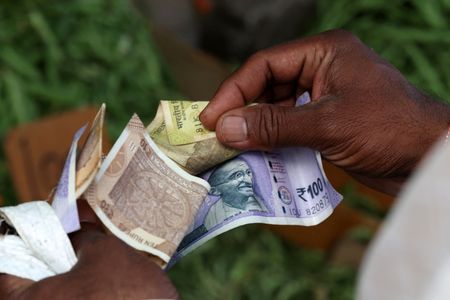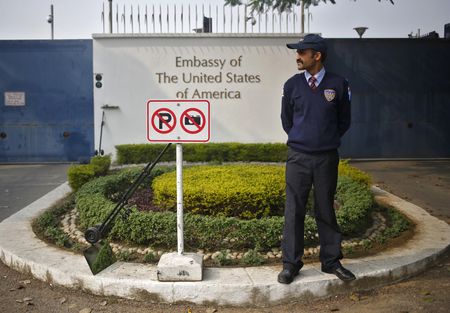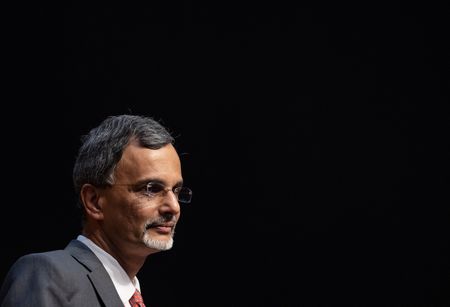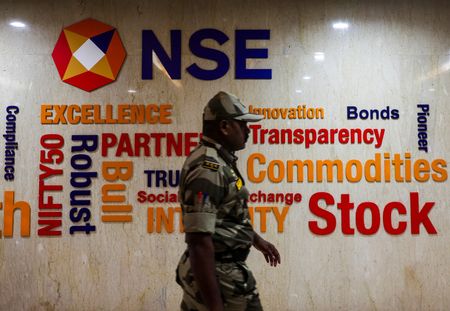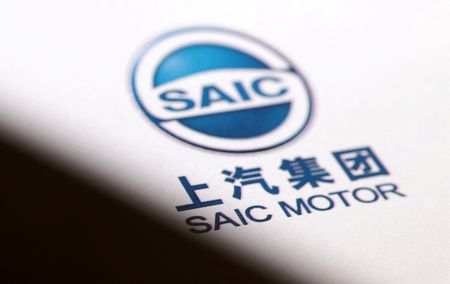MUMBAI (Reuters) – The Indian rupee weakened alongside its regional peers on Thursday as investors digested the U.S. Federal Reserve’s widely anticipated interest rate cut and its measured stance on further easing of benchmark borrowing costs.
The rupee closed at 88.13 against the U.S. dollar, down 0.36% on the day. Asian currencies were down between 0.1% to 0.6%.
The dollar was a touch lower at 96.9 against a basket of major currencies but up from a 3-1/2-year low hit in the immediate aftermath of the Fed’s policy announcement.
“The level of dissent, the revised ‘dots’ and economic projections were consistent with the market’s pricing and narrative ahead of the meeting but bordered on the hawkish rather than the dovish side of expectations,” analysts at HSBC said in a note.
Traders reckon that the rupee is likely to see two-way price action in the near-term and track broader dollar moves with support pegged near 88.45 and resistance near 87.75-87.80.
Investors stepped up short positions on the Indonesian rupiah and the Indian rupee, a Reuters poll showed on Thursday, driven by concerns over central bank rate cuts in Indonesia and U.S. tariffs affecting India.
Bearish bets on the rupee have risen to the highest since early February, the poll showed.
The U.S. may soon scrap the penal tariff imposed on Indian goods and could also lower the reciprocal tariff to 10-15% from the existing 25%, India’s Chief Economist Adviser V. Anantha Nageshwaran said at an event on Thursday, shortly before spot currency trading closed.
India’s benchmark equity indexes, the BSE Sensex and Nifty 50 ended up nearly 0.4% each while the yield on the benchmark 10-year bond rose nearly 4 basis points to 6.51%.
Tightness in rupee liquidity on account of income tax outflows prompted a rise in daily funding costs and prompted banks to tap the foreign exchange swap market to raise funds.
The Wednesday-Thursday swap rate climbed to a peak of 0.50 paisa, implying a rupee interest rate of over 6%, indicating banks are willing to borrow at an elevated cost via swaps.
(Reporting by Jaspreet Kalra)

